Myanmar. They survived the Loikaw inferno.
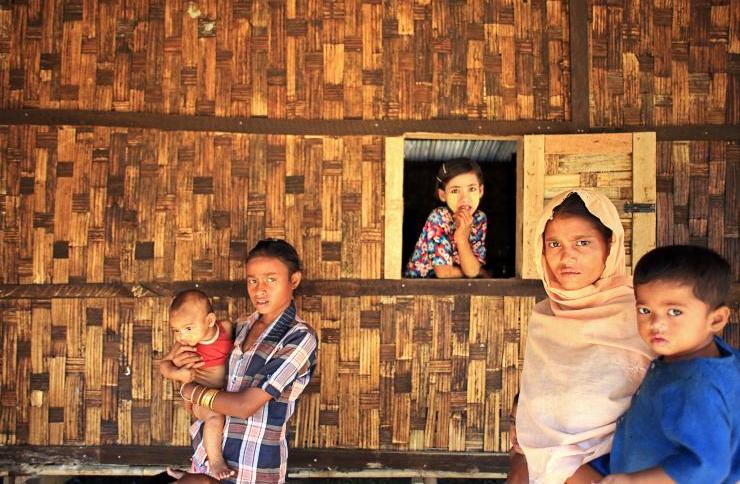
Former Burma has become an open-air prison since the military junta took power three years ago. Little news manages to arrive from a country where communications are precarious.
Kayah State is one of the worst affected. The testimony of the bishop of Loikaw and the story of the missionaries in the refugee camps on the border with Thailand.
Three years after the coup d’état of February 1, 2021, by the military junta in Naypyidaw, the political capital of Myanmar, the country remains locked in internal violence and international isolation. A few months afterwards, the powerful general Min Aung Hlaing appointed himself prime minister, while all the deputies of the National League for Democracy – the party that had won the 2020 legislative elections – were put in prison, starting with the leader Aung San Suu Kyi.
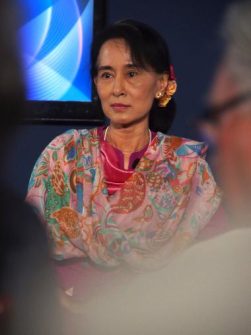
Last April, Aung San Suu Kyi, leader of the National League for Democracy, moved from prison to house arrest. She has spent nearly two decades under some form of arrest since 1989. CC BY-SA 3.0/ C.GEORGE
Telecommunications and the internet blacked out, the blanket search of homes, violence and tanks in the streets of cities are among the few pieces of news that in recent years have managed to cross the borders of a country that seemed to be on the road to democracy. Instead, the hard fist of the military junta in power has reignited the ethnic conflicts of former Burma with the consequent formation of local armed organizations which have coalesced into the Alliance of the Three Brotherhoods (made up of the Arakan army, the Myanmar National Democratic Alliance and the Ta’ang-Tnla National
Liberation Forces).
Loikaw Cathedral burnt down
Since last November, clashes have intensified in the state of Kayah, the smallest in Myanmar, in the mountainous area on the northern border with Thailand. The Burmese military junta has used heavy weapons, fighter planes, armoured vehicles, ballistic missiles and mobile defence systems. As a result, 80% of the civilian population fled their villages into the forests and mountains or sought refuge in refugee camps on the Thai border and other locations in neighbouring Shan State.
The diocese of Loikaw was particularly affected, where in the previous months around eighty people, including 10 priests, 16 religious and some employees, had taken refuge in the Pastoral Center near the Cathedral of Christ the King which the government soldiers attacked three times, and finally burned, as told by the bishop, Monsignor Celso Ba Shwe who was forced to abandon Loikaw. “We tried to convince the military of the importance of religious sites, asking them to spare the place, which among other things welcomed displaced people. However, on the night of November 26, the military intentionally hit the Pastoral Center several times with artillery shells, destroying the roof of the Pastoral Center chapel. For safety reasons, we decided to leave the Pastoral Center. Shortly before our departure on November 27, 50 soldiers came and occupied the structure to use it as a base.
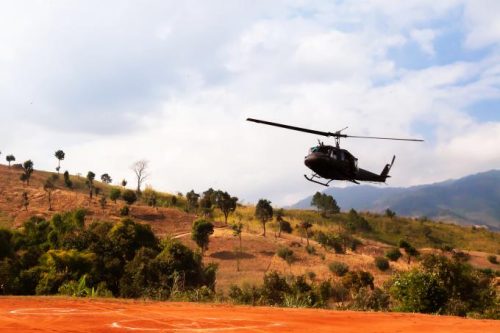
Burma Military helicopter landing. The Burmese military junta has used heavy weapons, fighter planes, helicopters, armoured vehicles, ballistic missiles and mobile defence systems. iStock/Tanes Ngamsom.
Since November 2023, nearly 40,000 people in Loikaw, out of a total population of 50,000, have fled their homes after junta offensives, including artillery shelling against Karennis rebels, who were fighting in an attempt to take control of the city.
In recent months, Msgr. Celso Ba Shwe, 51, continued to move, visiting the various refugee camps. Bishop Celso says: “A bishop has a great responsibility in caring for the people entrusted to him, not only for their spiritual well-being but also for their physical well-being in times of crisis and conflict. Being the bishop, I am involved in emergency humanitarian response, when people are affected as in this case by man-made disasters through conflict.”
Speaking of his diocese he comments: “In my diocese, out of 41 parishes, 31 have been displaced and temporarily closed. More than 40 buildings in the diocese were destroyed. The population of the diocese is approximately 89,000 inhabitants, of which almost 70,000 are displaced. The priests, men and women religious, including myself, are displaced together with our people, fleeing under the fire of artillery and attacks from the air.”The bishop continues: “Only solidarity, justice with mercy, love with compassion while respecting human rights can bring about the change we need. I am very encouraged to see our Catholics maintaining their faith in the midst of such great difficulties: in almost all the camps where there are Catholics, there is a simple place of worship, even if made only with bamboo, for the prayer of the rosary and for the celebration of the Eucharist on Sunday. Where there is faith in God there is always hope. In this seemingly dark time in which we sometimes feel disoriented in the face of the evil and violence that surrounds us, in the face of the hardship of so many of our brothers and sisters, we need hope. We must not let hope abandon us because God with his love works and walks with us.”
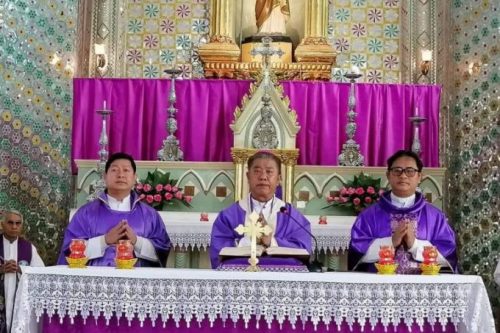
Monsignor Celso Ba Shwe, bishop of Loikaw. “As a bishop, I am involved in emergency humanitarian response, when people are affected as in this case by man-made disasters through conflict.” File swm
Mgr. Ba Shwe was unable to celebrate the rites of Holy Week and Easter in his cathedral in Loikaw so he did so in a new “bamboo cathedral” dedicated to Christ the King, a simple wooden chapel, specially built in the forest to be able continue to celebrate the Eucharist: this, he recalls, “creates the community, which gathers around Jesus, even if dispersed across the territory, remaining united in prayer in a time of tribulation”. This is what the Bishop said to the displaced people who, traumatized and suffering, find themselves in spontaneous refugee camps, improvised in some areas, or in other camps organized with the help of the local Church. “We have no idea how long this situation and this time of precariousness will last. I don’t know in what conditions we will find the cathedral or when we will be able to return to it. We pray to the Lord and we entrust ourselves to Him as a community that desires and asks for peace and salvation, the gift of Easter that we all await with great hope”, the bishop concludes.
Solidarity
The Church, missionaries and nuns are mobilized to help the affected populations. “I am also with them in the refugee camps”. Commenting, a missionary from Thailand who is involved in assisting refugees.
He continues: “Just over the mountains we have Mae Hong Son camp which contains 8,000 refugees who come from Loikaw province. They are the ones who managed to get there. Many people gather at the borders, while village leaders of various ethnic groups try to prevent people from fleeing so as not to abandon the territories to the violence of the military junta.”
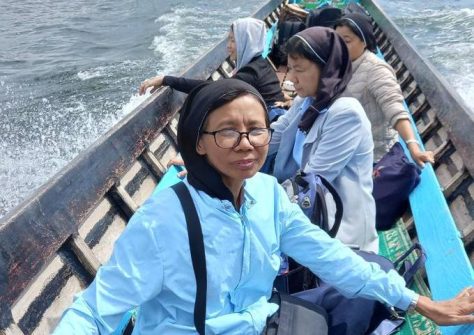
Good Shepherd Sisters use a boat to go to a safer location as fighting becomes more intense in Loikaw, last November.
Father Dominique and Father Joseph are two Thai priests trying to organize aid to be brought to Myanmar. “We try to provide the essentials: medicines and rice because the situation of extreme poverty of the people is worsening and there is widespread hunger.”
The missionaries add that people say that, while escaping, they were bombed several times by military planes.
Meanwhile, last December the Missionary Handmaids of the Blessed Sacrament of Loikaw, managed to bring the orphaned girls of their school to safety, even at the risk of their own lives, trying to testify to their faith in God and love for the Burmese people. Sister Pansy says: “In every place where people live in a state of war, Jesus is close to those who suffer, whether in the forest, the refugee camps or in the tents waiting for food and care. He gives them hope and resilience, supports them and becomes a means of conveying the affection of the prayers and solidarity of their brothers and sisters.” (Open Photo: Shutterstock/ Suphapong Eiamvorasombat).
M.F.DA



